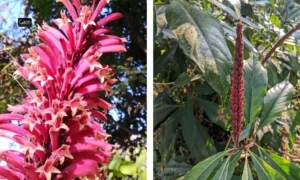Amidst the preparations for paddy cultivation, Indian farmers grapple with water shortages, compelling them to seek innovative technologies for water-efficient farming. Exploring these techniques not only addresses water scarcity but also offers significant advantages in terms of labour efficiency and greenhouse gas reduction. Let’s look at the strategies employed by rice farmers, particularly focusing on the cultivation of Basmati rice varieties.
Choosing the Right Varieties:
Basmati rice, renowned for its aromatic fragrance and delicate flavour, offers a spectrum of varieties suited to varying cultivation periods. Expedited maturation times are observed in varieties such as Pusa Basmati 1509, 1692, and 1847, ripening in just 120 to 125 days.
Medium-stage varieties like Pusa Basmati 1121, 1718, and 1885 mature within 140 days, while long-duration varieties such as Pusa Basmati 1409, 1885, and 1886 require 155-160 days to ripen.
Notably, these varieties boast resilience against disease, rendering them ideal for direct sowing techniques.
Seed Treatment:
Effective seed treatment is elemental for ensuring robust crop growth. Farmers adopt a meticulous approach, beginning with soaking seeds in a 10% salt solution to separate heavy and light seeds. Subsequently, seeds undergo treatment with Streptocycline and Bavistin solutions for 24 hours, followed by thorough drying in shaded areas, preparing them for sowing.
Sowing Methods:
Farmers employ two primary methods for paddy sowing: the wet method and the dry method. The wet method involves thorough ploughing and watering of fields post-wheat harvest, ensuring moisture retention for extended periods. Sowing is facilitated using zero drill or lucky seed drill machines, with rows spaced approximately eight inches apart.
Alternatively, the dry method entails levelling fields post-wheat harvest and sowing rice with a drill, followed by watering.
If farmers are planting the same variety of paddy in a field where it was previously planted, there’s no cause for concern. However, if they switch to a different variety, it’s important to remember that the fields are watered immediately after sowing.
Weed Management:
Weed control is essential in both methods. Many farmers use Pendimethalin and Nominee Gold medicines post-sowing to mitigate weed growth. Effective weed management is critical for maximising crop yield. Direct sowing techniques aid in weed control, leveraging the initial watering phase to eliminate weeds through ploughing. Timely application of Pendimethalin and Nominee Gold medicines further suppresses weed growth, ensuring optimal crop development.
Through innovative techniques and meticulous management practices, Indian rice farmers navigate water scarcity challenges while optimising crop yield. The adoption of water-efficient farming methods not only addresses environmental concerns but also fosters sustainable agricultural practices, laying the groundwork for a resilient agricultural future.
(Insights provided by Dr. Ashok Kumar Singh, Director of ICAR-Indian Agricultural Research Institute, shed light on the efforts of Indian rice farmers in combating water scarcity through innovative farming techniques.)



















